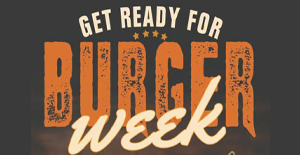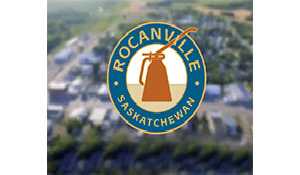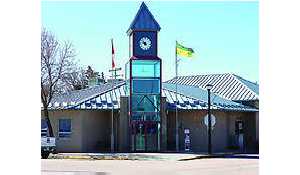CFIB estimates one in seven small businesses could close
Due to Covid-19:
August 4, 2020, 9:25 am
Rob Paul Local Journalism Initiative Reporter


The Canadian Federation of Independent Business (CFIB) has found in a survey that one in seven small businesses in Canada are at risk of closing—in addition to the businesses that have already closed— due to the impacts of Covid-19.
CFIB’s current estimate for business closures due to Covid-19 is 158,000 (14 per cent of small businesses). They estimate there will be somewhere between 55,000 (five per cent) closures and 218,000 (19 per cent) closures depending on recovery efforts.
“Small businesses are big players in our economy, so minimizing business losses is critical to recovery,” said CFIB Executive Vice-President Laura Jones. “Right now both government support and consumer behaviour are critical to transitioning back to conditions that allow businesses to survive and thrive.”
CFIB predicts that in Saskatchewan there will be between 1,665 (four per cent of small businesses) and 8,503 (21 per cent) small business closures due to Covid-19.
The mid-range estimate for Saskatchewan business closures is 6,283 (16 per cent).
CFIB stresses that keeping that number low will all be based on recovery efforts from government and consumers.
“Although most of the provincial economy has reopened, there are still many businesses struggling to survive,” said CFIB Prairie Region Director Jonathan Alward.
“75 per cent of businesses are now fully open, but just one in three are seeing usual revenues for this time of year,” said Alward. “It is critical that the federal government continues to adjust important programs like the CEBA and CECRA to ensure the businesses in need of help the most get it before they are forced to close permanently.”
CFIB found that businesses in the arts and recreation (gyms, venues, arcades) and hospitality (restaurants, hotels, caterers) sectors are the most at risk. They estimate that hospitality could see 27 per cent of businesses close while arts and recreation could see as many as 30 per cent close.
Businesses in Alberta face the highest risk of closure by province with a mid-range estimate of 19 per cent due to Covid-19 followed by Saskatchewan, Ontario, and Newfoundland being the second highest risk for closures with a mid-range estimate of 16 per cent.
To help counter small business closures, CFIB has launched their Small Business Every Day campaign to encourage local shopping through a series of challenges and initiatives that support small business recovery.
“We hope people will visit smallbusinesseveryday.ca and accept a challenge as a fun way to spend time with friends and family while helping local businesses,” said Jones. “It’s all about supporting our favourite businesses today so they will be here tomorrow. There are many great campaigns that help amplify that support. No one is too small to make a difference.”
Despite Canada slowly beginning to find some normalcy as the country reopens, CFIB wants Canadians to understand that there are still major long-term impacts from the pandemic and time and money must be invested into helping save small businesses.
“Even though the economy is continuing to open up more across the province—and really elsewhere throughout the country we’re seeing the same thing—it’s still very far from business as usual,” said Alward. “In Saskatchewan, 75 per cent of businesses consider themselves fully open, but only 33 per cent are seeing normal revenues and only about half are seeing normal staffing levels for this time of year.
“I think there are still many businesses out there that are struggling to survive and consumer confidence is very low and, in many cases, costs are up across the board,” he said.
“We need to make sure we’re very aware of that and we’re supporting local and government programs are there to support these businesses to help avoid any bankruptcies or businesses wanting to end their operations because of Covid-19.
“It’s very concerning and it’s one of the reasons we launched the Small Business Every Day campaign to try and encourage our residents in Saskatchewan—and really all Canadians coast-to-coast—to put an emphasis on shopping local right now when they’re thinking about spending. Like with Amazon, they’re not employing people in the province and Walmart isn’t supporting the local baseball team. Small businesses are employing Saskatchewan residents, they’re paying taxes here, they’re community volunteers, and they’re often community donors for charitable organizations. We need to support them now because many of them are still struggling and that’s really what the Small Business Every Day campaign is all about.
“When you look at the research we released, and a lot of the other metrics we’ve put out, we’re trying to keep governments aware of what the small business climate looks like in the province and thought the country to make sure the government programming is responding the way it needs to, to help these businesses get through the pandemic and thrive for long after.
“When we start to look at the amount of those businesses that are actively considering bankruptcy or wanting to end their business all together the numbers are staggering,” he said.
“When you look at Saskatchewan, I think it’s tied for the second most concerning across the country. That’s obviously something we want to avoid, but even more than that, we also know it’s impacting some sectors harder than others. If you look at the arts and recreation sector and hospitality sector, they’re facing greater concerns than many other types of businesses right now. I think we’re at risk of losing a lot of those businesses we care about the most.”
Even if the small business closures don’t directly impact people, the snowball effect they will cause will hurt every community, says Alward.
“I think this will be extremely extremely concerning (for the Canadian economy),” he said. “What’s important to remember, this is in addition to what you would usually see in the run of a year for the number of businesses that are going bankrupt or wanting to end their operations. This is above and beyond that. It would have a dramatic effect long-term.
“If you look at the mid-range estimate in Saskatchewan, you’re looking at over 6,200 businesses that could be closing permanently. That’s 6,200 business, most of whom have staff that they’re employing, that pay taxes—not just at the federal level, but the provincial and municipal levels too—and there are just so many repercussions that would happen if that many business in the province go out of business permanently. It’s very concerning and that’s why we’re trying to continue this research and share it with everyone to make sure they understand how dire this situation still is for many businesses.
“People who don’t own a small business or aren’t directly employed by a small business or have a spouse that’s employed by one need to understand it impacts them too. Small businesses are paying a huge amount of taxes and their staff are paying a huge number of our taxes,” he said. “These are places we like to go out and shop usually. If that large a chunk of restaurants go out of businesses, it’s very concerning. What impact does that have on something like tourism? Or even on a culture level if that number of independent businesses are no longer there. There are a lot of ways this would have a hugely negative impact on our provincial and national economy if we can’t correct this course.”
As the Covid-19 recovery efforts continue, Alward says, CFIB is doing what they can to help, but the government needs to recognize businesses need more consistent support.
“We have business councillors in basically every region of the country helping our members—and during the pandemic non-members—to answer questions regarding staff layoffs or bringing back staff,” he said. “Inevitably questions about bankruptcy come up and we’re trying to do everything we can, not just on the research front, but on our Business Help Line. We’ve definitely been hearing these extreme concerns and the precursors to that type of stuff.
“The health and safety for everybody has to be the top priority, obviously. People have to feel safe going to work and going out to support businesses in their local economy. There are a lot of programs at the federal and provincial level that they can expand on. Looking at the federal level, we’ve been pushing for changes with two of the most important programs, with CEBA—increasing that loan amount would help a lot of business struggling with cash flow—and CECRA—there are several big problems with it, we’re asking for the government to pivot and get that money directly to the businesses that need it. Those are two big things.
“At the provincial level we’re looking at tax deferrals to help with cash flow, redirecting money that was unspent in other programs to help pay for things like subsidizing rent costs for those businesses most impacted, or helping cover costs with things to help businesses comply with Covid-19 regulations and prevent community spread with PPE availability, sanitizer stations, or putting up non-permeable barriers. All those things are going to have a benefit, not only for business cash flow, but hopefully for consumer confidence.”
Right now the top priority for CFIB is keeping federal, provincial, and local government and residents of Canada informed on how important supporting small businesses through the recovery efforts is, says Alward.
“Certainly our advocacy work really relies on this data,” he said. “I can honestly say that governments have been paying close attention to it, certainly provincial governments and municipalities. We’re sharing this with them on a regular basis and they’re keeping a close eye on it. That’s why we do this research and put it out publicly, to make sure everybody understands what the business climate here looks like.
“In this case, we want to make sure people realize that even though many more businesses are allowed to be open, it’s still far from business as usual and many are still struggling to survive. In launching the Small Business Every Day campaign, we’re making sure that all residents in the province understand how critical it is to support small businesses right now.



































